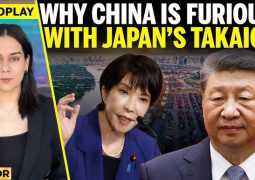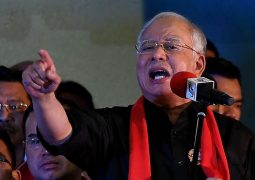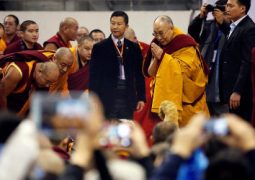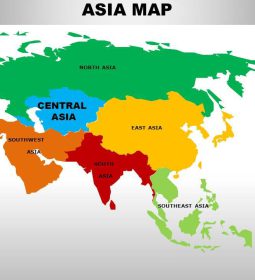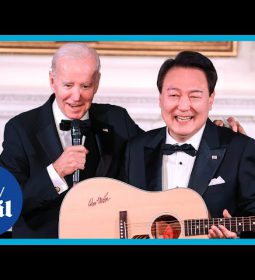Asia’s giant trade pact is not waiting for India
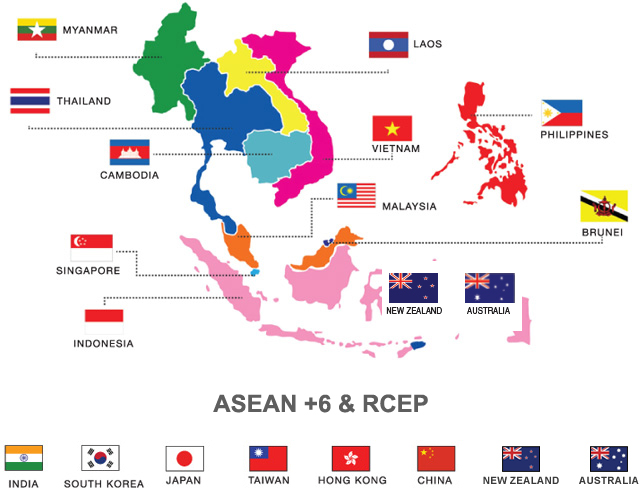
Thailand says talks for the world’s biggest trade deal have been ‘conclusive’ despite concerns from India.
Asian countries have held conclusive talks on what could be the world’s biggest trade pact and there will be an announcement to that effect at a summit in Bangkok, despite doubts raised by India, the Thai hosts said on Monday.
But questions still hung over India’s participation in the China-backed Regional Comprehensive Economic Partnership (RCEP), which has been given new impetus by the trade war between the United States and China.
Despite a message of support from US President Donald Trump to the Association of Southeast Asian Nations (ASEAN), regional countries noted that Washington had downgraded its delegation for the annual Asian meetings.
Southeast Asian countries hoped to announce at least provisional agreement on the 16-nation trade bloc that would account for a third of global gross domestic product and nearly half the world’s population.
But last-minute demands raised by India meant negotiations among ministers went late into the night. The bloc includes the 10 ASEAN members plus China, South Korea, Japan, India, Australia and New Zealand.
“The negotiation last night was conclusive,” Commerce Minister Jurin Laksanawisit told the Reuters news agency.
“There will be an announcement together on the success of the RCEP agreement by the leaders later today. India is part of this as well and will jointly make the announcement. The signing will be next year.”
But an Indian official with close knowledge of talks said not everything had been resolved and discussions were still ogoing, adding that it was “all being decided politically”.
China’s foreign ministry referred in a statement to “RCEP-15 member states” concluding most negotiations – implying that only 15 countries had agreed. Australia’s trade minister Simon Birmingham also cast doubt on whether India was on board.
Trade war impetus
New impetus to complete the deal has come from the trade war, which has knocked regional growth, but India fears a potential flood of Chinese imports and officials with knowledge of the negotiations said India had raised late demands.
“Initially, it was created to counter what the US was pushing forward under the Obama administration – the Trans-Pacific Partnership (TPP). [RCEP] was China’s response to that,” said Al Jazeera’s Asia correspondent Scott Heidler.
However, one of the first executive orders made by Trump after being inaugurated president was to remove the US from the TPP.
“That gave more wind in the sails of RCEP. It would be a big win for China if this does go through,” Heidler said.
Diplomatic and security calculations in Southeast Asia have shifted under the Trump administration, and the US decision to send a lower-level delegation to the summits this year has raised regional concerns that it can no longer be relied on as a counterweight to China’s increasing regional might.
Because of the downgrade in the US delegation, only three of the 10 regional leaders joined the usual US-ASEAN meeting.
US Commerce Secretary Wilbur Ross told a business meeting on the sidelines of the summit that the administration of US President Donald Trump was “extremely engaged and fully committed” to the region.
White House national security adviser Robert O’Brien brought a personal message from Trump offering to host a meeting of Southeast Asian leaders in the US.
He also condemned Chinese “intimidation” in the South China Sea, where several regional states reject China’s sweeping maritime claims and complain that Beijing is illegally stopping them from exploiting their energy resources and fishing grounds.
But diplomats and analysts said the message from Washington was clear.
“Doubts have been raised in a more serious way about the Trump administration engaging and this may also play into the hands of other superpowers in pushing their own agendas,” said Panitan Wattanayagorn, a former Thai national security adviser.
- Previous New Economic Pact in Asia: No India and USA part of it: How Asia’s giant trade pact took shape as global tensions grew
- Next Could India demands tank trade bloc poised to be world’s largest?



